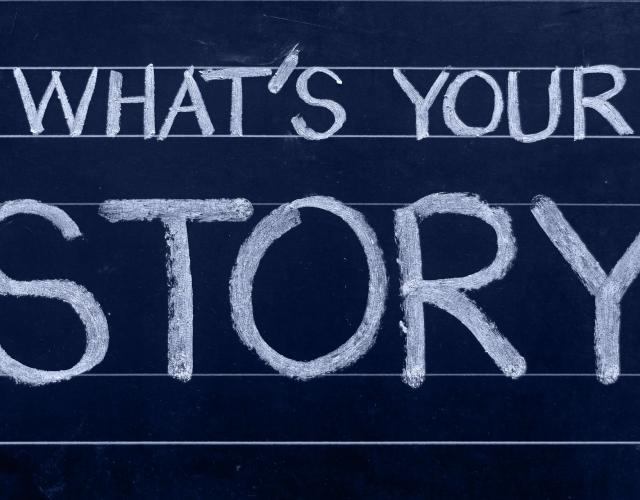A Face of Aphasia
June is National Aphasia Awareness month, and what better way to bring awareness to something than to put a "face" to it.
And aphasia has many faces. An estimated 2-2.4 million faces in the U.S. alone. It could be the face of a family member, neighbor, coworker, or the person in front of you in the grocery checkout line. Each face with their own story about how aphasia, the language disorder commonly due to stroke or brain injury, has impacted their lives.
Meet Vince. Vince had a stroke in July 2019 and now has aphasia and apraxia, a speech disorder that affects the planning of speech movements and can make speaking effortful and difficult to understand. This is what he shared about how aphasia & apraxia affect daily life and how he chooses to live beyond the challenges.
Aphasia @ Home
Vince is thankful to have very supportive family and friends. Conversations with his wife, Tena, and their 3 adult children have changed "a lot," says Vince.
"Tena understands whatever I say. If she doesn't understand, I slow down and look for different words. I can carry on a conversation with Tena all time. When I slow down, I can express myself sometime. Not all the time, some time." He says he tries to keep an open mind and uses humor to cope. "Sometimes it gets me in trouble," He laughs.
When asked if he feels he gets his message across, he replied: "Better now than used to. Big time I think. One problem I have...stressful situations. I get nervous. [When Tena is driving] I say '[Go] right, right.' I mean 'left'." His solution: "I drive."
Aphasia @ Work
Vince was the director of 4 regional libraries at the time of his stroke. His job included everything from holding board meetings, hosting podcasts, supervising, and puppet shows & reading to children.
"I had a stroke. I couldn't do my job. At first I believed I could continue my job, um...can't. I realize that now."
He is still able to operate audio/visual equipment, which he loves. He is now volunteering with the audio/visual team at his church. He makes videos to document his aphasia journey, thankful for what he is still able to do. He hopes to do part-time work with a library in the future.
Aphasia @ Community
Vince says that after the stroke he was nervous about how people would react to his communication, saying he would wait for others to speak to him first. Now, almost a year later, he has had improvement in his speech and is taking more initiative though it's still tough.
"I order in the drive-thru. I didn't used to." He says asking for simple things like ketchup or a Powerball lottery ticket is frustrating. Even though he is talking with more people he admits,"I can do it. Easier for [Tena] to do it."
Aphasia @ Play
Vince loves to write and has authored multiple books--- all of which highlight his witty sense of humor. Aphasia has made writing more difficult, but with a little encouragement (from his speech therapist, of course) he has begun to write more. In a recent Facebook post he wrote:
"...my Aphasia limits me. I have trouble grasping all my thoughts into words. It is a struggle. I am better now and can form sentences...Those long writing days are gone for now...temporarily, I hope. Writing posts like this is exhausting, mentally and physically. I can't imagine writing a book or article."
But what aphasia hasn't touched is his chess game. "Aphasia didn't affect my playing chess. Still remember all the moves. I can still...mount a defense. Strategy game. Not numbers."
The stroke made his dominant, right hand weaker and numb, which affects his ability to paint his electronic football figures and play golf the way he used to. He is teaching himself to paint with his left hand. As for his golf swing?
"My therapy is golf lessons. I have to learn all over again."
Thank you , Vince for sharing your story...Keep moving forward!
Later this month, Vince's wife,
Tena, shares her perspective as spouse & caregiver--- a role that has challenges all its own.
Do you have aphasia or someone you know? What's been the biggest challenge? What are you thankful for? Share in the comments below.
Respond Speech Therapy
Comment Policy
We welcome relevant, respectful comments.
Please review our Comment Policy before commenting.
Terms and Conditions | Privacy Policy | Accessibility Statement
LSVT LOUD® is a trademark of LSVT Global, Inc., registered in the U.S. and other countries.
All Rights Reserved | Respond Speech Therapy | sitemap



